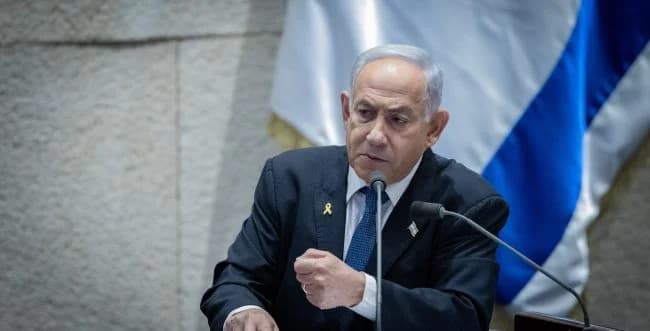With Ceasefire Vote Delayed, Netanyahu’s Motives Come Under Scrutiny
Hostage Deal still up in the air, Is Benjamin Netanyahu to blame?
As Prime Minister Benjamin Netanyahu postponed a highly anticipated ceasefire vote today, questions have emerged about his true motivations behind the move. Accusations from Hamas that it inserted an 11th-hour demand into the deal have fueled speculation about whether Netanyahu's actions can be trusted, especially in light of his role in Israel’s ongoing conflict.

Multiple sources, including Israeli, Arab, and U.S. officials, have suggested that Netanyahu himself played a significant role in introducing deal-breaking conditions at key moments during the ceasefire negotiations. One of the most damaging instances occurred in July, when Netanyahu unexpectedly demanded new terms regarding the withdrawal of Israeli forces from Gaza. This move effectively derailed what many had hoped would be a breakthrough in the peace process, according to JBN reports.
Despite this, U.S. officials have refrained from directly criticizing Netanyahu, opting instead for a more diplomatic approach by pointing to a lack of full cooperation on both sides of the negotiation table.
Over the course of the conflict, former members of Israel's war cabinet, including Benny Gantz and Yoav Gallant, have spoken out against Netanyahu’s actions. They argue that his determination to preserve his coalition government has repeatedly undermined crucial hostage negotiations, further complicating the situation.
The political turmoil surrounding Netanyahu has intensified following the recent arrest of one of his top aides. The aide was allegedly involved in leaking fake classified information to foreign media. A document that surfaced in July, purportedly written by Hamas leader Yahya Sinwar, claimed that Sinwar was preparing to escape Gaza with the hostages through a corridor Netanyahu had refused to vacate. However, the Israeli Defense Forces (IDF) soon debunked this narrative. Rear Admiral Daniel Hagari stated that he had no knowledge of the intelligence in question, and an investigation revealed that the document in question had been falsified.
Despite Netanyahu's attempts to downplay the scandal and deny any leaks, the fallout has raised serious concerns. His dismissive response to questions about how these leaks impacted hostage negotiations has done little to quiet critics who now question whether Netanyahu’s political ambitions have come at the expense of Israeli lives.
The timing of the fake leak is particularly troubling. Just weeks after the disinformation surfaced, six hostages were brutally murdered by Hamas in September. These hostages—Hersh Goldberg-Polin, Eden Yerushalmi, Carmel Gat, Almog Sarusi, Alexander Lobanov, and Ori Danino—were held in horrific conditions in Hamas’ underground network. They suffered from extreme deprivation, with little access to food, water, or proper sanitation. Their brutal deaths highlighted the stakes of the negotiations.
Sources suggest that at least four of the hostages were set to be released over the summer, had a ceasefire deal been finalized. Multiple reports indicate that the current ceasefire proposal closely resembles a deal initially presented by U.S. President Joe Biden in June.
Netanyahu's office now claims that Hamas is derailing previous agreements by demanding the release of additional Arab prisoners. As the truth continues to become increasingly murky, one thing remains clear: the political games being played could have deadly consequences for Israeli hostages still in captivity. How much longer will these negotiations be held hostage by political theater? Time may tell just how many lives are ultimately saved or lost.